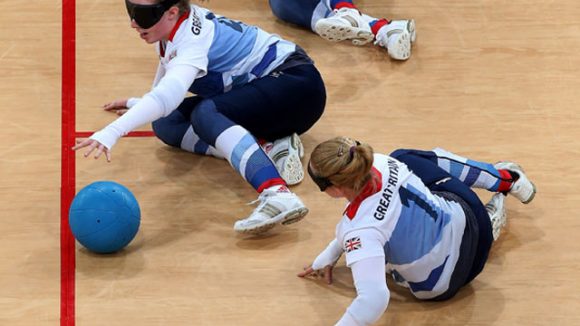Paralympian Georgie Bullen shares her story
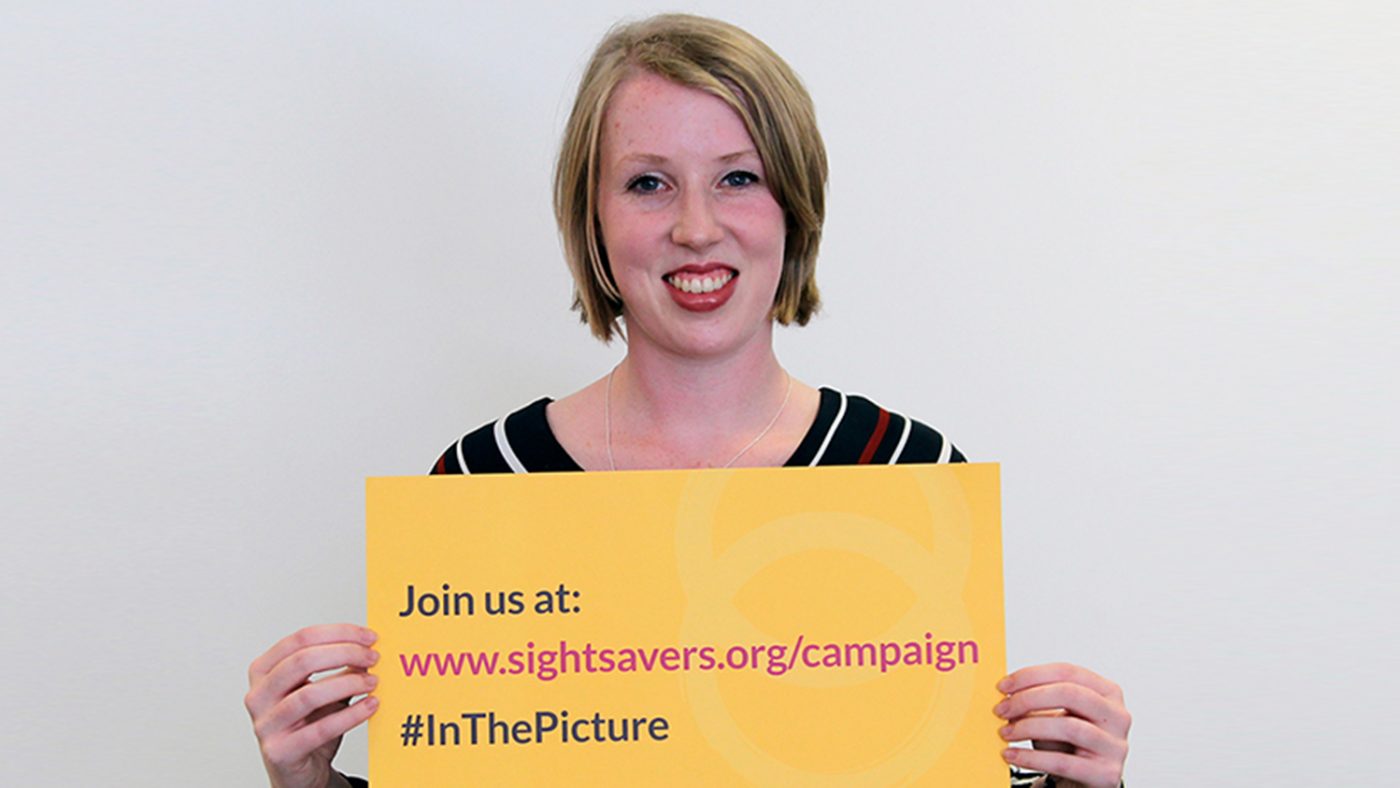
Our social inclusion coordinator Kate Bennell was inspired to meet Paralympian and inclusion campaigner Georgie Bullen when she visited our UK offices.
Despite being diagnosed with macular degeneration at five years old and registered blind by the age of eight, Georgie was always determined to remain independent. She wanted to play every sport her fully-sighted brothers could – including taekwondo – and to achieve academically despite reading almost four times more slowly than her fully-sighted peers.
Georgie had never tried any sort of disability sport, and was even discouraged by her teacher from taking a GCSE in physical education, so when invited to attend a Paralympic talent identification day she went along with low expectations. A few months later, she was training alongside the GB goalball teams with the best para-athletes in the country. She says taking part in the 2012 Paralympics, where the GB goalball team made it to the quarter-finals, was an incredible experience.
After the Paralympics, Georgie completed her A-levels but gave up her dream of going to university because of her deteriorating sight. With 73 per cent of blind and visually impaired people of working age unemployed in the UK, she knew that finding a job would be difficult. “I eventually realised that the real reason employers don’t want to hire visually impaired people is because they just don’t understand what it’s like to be visually impaired. They’re awkward and afraid. They don’t want to invite you for an interview, because they don’t know whether to hold out their hand to shake yours.”
In 2014, Georgie launched Team Insight, which delivers team-building and visual impairment awareness training experiences. “We still need to push further and reach more organisations,” she says. “ We need to help them understand that people with visual impairments can do any job – other than being a pilot or chauffeur, of course!”
As a child, I too failed to find a sport that I was good at, and as an adult I experienced challenges in gaining meaningful employment. When I started looking for work in the 1990s, like Georgie I applied for many jobs, but found that people didn’t understand that, despite being visually impaired, I had skills to offer. Georgie’s story hit home with me on many levels, and I found it truly inspirational.
Author
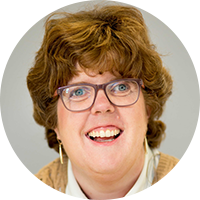 Kate Bennell is the organisational inclusion coordinator at Sightsavers UK. Severely sight impaired herself, she coordinates the Social Inclusion Working Group and champions accessibility.
Kate Bennell is the organisational inclusion coordinator at Sightsavers UK. Severely sight impaired herself, she coordinates the Social Inclusion Working Group and champions accessibility.
LinkedIn
Read about Sightsavers’ commitment to inclusion
Social Inclusion Working GroupMore from the Social Inclusion Working Group
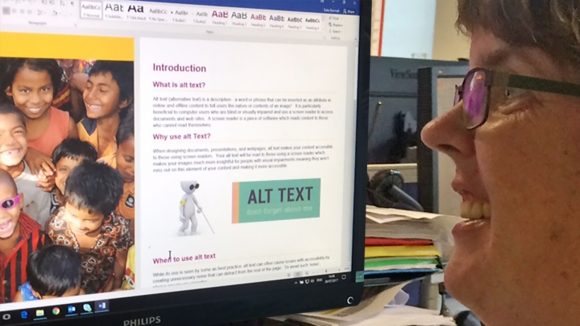
How to support people with hydrocephalus at work
Sightsavers’ Kate Bennell shares her experience of living with hydrocephalus and explains how employers can support colleagues with the condition.
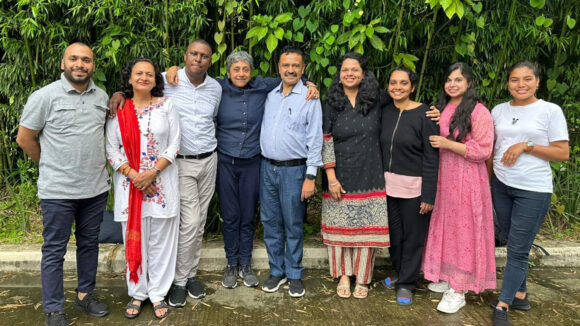
How people with psychosocial disabilities can claim their rights
Sightsavers’ Kate Bennell reflects on a recent talk led by Transforming Communities for Inclusion about psychosocial disabilities.
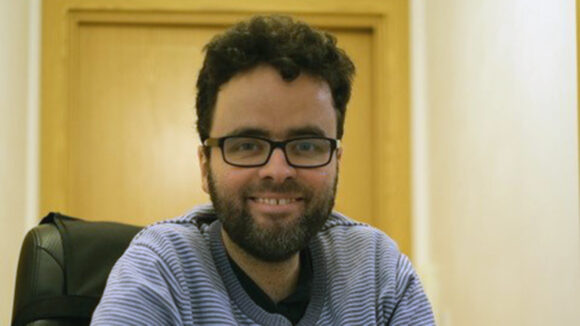
“My aim is to make the world a better place for disabled people”
Sightsavers’ Kate Bennell talks to Peter Fremlin, curator and author of the Disability Debrief, about the online newsletter which provides a disability lens on world news.
